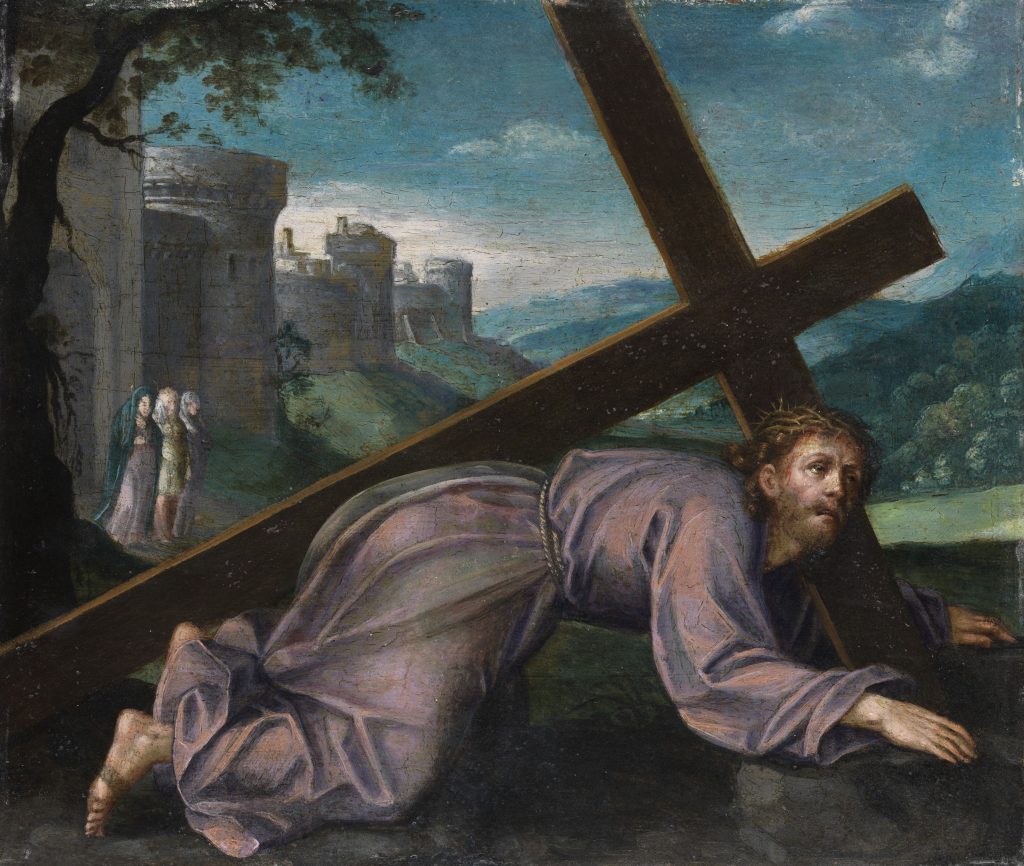I am a worm and no man (VII: 7th Degree)

4 Feb. 5 June. 5 Oct.
The seventh degree of humility is, that he should not only call himself with his tongue lower and viler than all, but also believe himself in his inmost heart to be so, humbling himself, and saying with the prophet: “I am a worm and no man, the shame of men and the outcast of the people: I have been exalted, and cast down, and confounded.” And again: “It is good for me that Thou hast humbled me, that I may learn Thy commandments.”
The seventh degree of humility marks an interior change, a conversion. Whereas, in the first six degrees, the monk seeks to express humility in his actions, his words, and his relationships, in the seventh degree humility is something deep within him. Saint Benedict guides his sons through doing and saying humble things to a state of humility in the inmost heart.
People engaged in Twelve Step programs, such as AA, will often say that there are moments in the journey when the best thing one can do is to “act as if” until by changes in one’s actions, one’s thinking also changes, and a new principle of living comes to supplant the old. Those who practice Cognitive Behavioural Therapy link up with the wisdom of the Desert Fathers when they say that thoughts give rise to words, and words give rise to actions. An example: the brother who is sinking into anxiety can replace the anxious thought with a wholesome thought, and articulate the wholesome thought by speaking it aloud to himself. Once articulated, the wholesome (or virtuous) thought can be translated into wholesome (or virtuous) action. Such actions repeated over time become a habitus, that is a virtue.
Saint Benedict would have his monk pass from the outward expression of humility to humility of heart. Mother Mectilde calls this humility of heart anéantissement, a being brought to nought, a kind of en–nothingment. This is where the outward demonstrations of humility break through the resistance of the hardened heart. This is where humility becomes something secret and hidden. This is where the monk, following Jesus along the via crucis, falls once, twice, three times or more. With each successive fall what is outward matters less and what is inward becomes deeper. “Deep lies my soul in the dust, restore life to me, as thou hast promised” (Psalm 118:25). Thus is a monk drawn into the mystery of Jesus’ self–emptying, the very mystery that he contemplates in the sorrows of the Passion and in the silence and hiddenness of the Host. The Host is the icon of the humility of God.
One cannot abide in the presence of the Host without being drawn into Its silence and hiddenness. It is a terrible thing, this Eucharistic humility of God. The Most Holy Eucharist is the Sacrament of the Divine Humility. Those who partake of It worthily enter into the humility of God, for one cannot eat the Bread of the Humble and remain proud. Those who adore this Sacrament of the Divine Humility are drawn into the obedience of God, who, at the word of a man, of a priest speaking and acting in the Name of Christ, annihilates the substance of a little bread to replace it entirely with His Divinity united to the Sacred Humanity.
Worldly arrogance scoffs at the folly of a God hidden under the appearance of a little bread and put away in a box; but this Mystery follows and completes the disconcerting logic of God who hides Himself in a Virgin’s womb, becoming a man like unto other men in all things, save sin.
The Eucharistic Humility of God is inseparable from His Eucharistic Silence. All through Chapter VII, Saint Benedict teaches that the silent will be humble, and the humble silent. This Mother Mectilde understood for she wanted her Benedictine adorers to bury themselves in the silence of the hidden God, the ineffably humble God in the Most Holy Sacrament of the Altar.

How refreshing to me are your comments on Humility. Slowly I am beginning to understand.